By Ismary Munet
About 350 people gathered at The Taipei Economic and Cultural Office in New York on Friday March 21. The multitude marched to Union Square in order to submit an appeal letter. The march was organized by “TAIWAN NOT FOR SALE,” which is a group of East Coast Taiwanese students, artists, educators, and creative and academic workers located in the U.S.
The TAIWAN NOT FOR SALE group, which also has its own Facebook page, wrote: “An undemocratic trade agreement between Taiwan and China is now in progress. This agreement will significantly threaten Taiwan’s economic and political autonomy, democracy, and people’s right. More than 20,000 people are protesting and occupying Taiwan’s Congress in the moment. This action is a response against the event and a support for those who are fighting for democracy and justice in Taiwan now.”
The appeal letter communicates the purpose for which TAIWAN NOT FOR SALE is aiming for: “Our Demands are: 1. Overturn and renegotiate the Trade Agreement with China. 2. Establish Democratic Legal Cross-Straight negotiation Mechanisms. 3. Reject Unequal treaties to Protect freedom of speech and freedom of the Press.”
The student-led movement against a trade pact with China started last week in order to push further review of the Trade in Services Agreement (TiSA), which is a deal that will open certain service sectors to investment from China, and vice versa.
Similar to TAIWAN NOT FOR SALE’s march, the demonstrations in Taipei are mostly peaceful, and led by a young group of people who gather and chanted around Parliament with their signs made of colorful cardboard.
Though this is the case, Taiwan’s prime minister said on Monday that the government’s use of force to remove the demonstrators against the trade bill with China was in fact justified due to the illegal occupation of government buildings.
The governing Kuomintang party continues to be determined to ratify the deal with Beijing in hopes of boosting the economy and creating jobs in Taiwan.
While this may seem positive, those against the bill view TiSA as a step toward China, which is one they do not want to take, and they also think that the agreement can actually hurt Taiwan’s economy, and make it vulnerable to pressure from Beijing.
Young Taiwanese, whether in Taiwan or in the U.S., are dedicated in fighting to keep Taiwan’s democracy and requesting the justice to review the way how the government approved the trade agreement which was not supervised by the people of Taiwan.
Though the relationship between China and Taiwan has softened over the years, since China is Taiwan’s prominent trading partner and ties between the two have improved, the young demonstrators want to, and will, make sure that their democracy remains in tact.
Then on March 31, there were over 1,000 people gathered at Times Square and protested peacefully to continue fighting for Taiwan people’s rights and requested the government to review the Cross-Strait Service Trade Agreement.
Despite the heavy rain and chilly temperature, the protesters stood in the cold weather using their speech, songs, music, and signs to support and encourage the students and demonstrators in the front lines at Legislative Yuan in Taiwan.
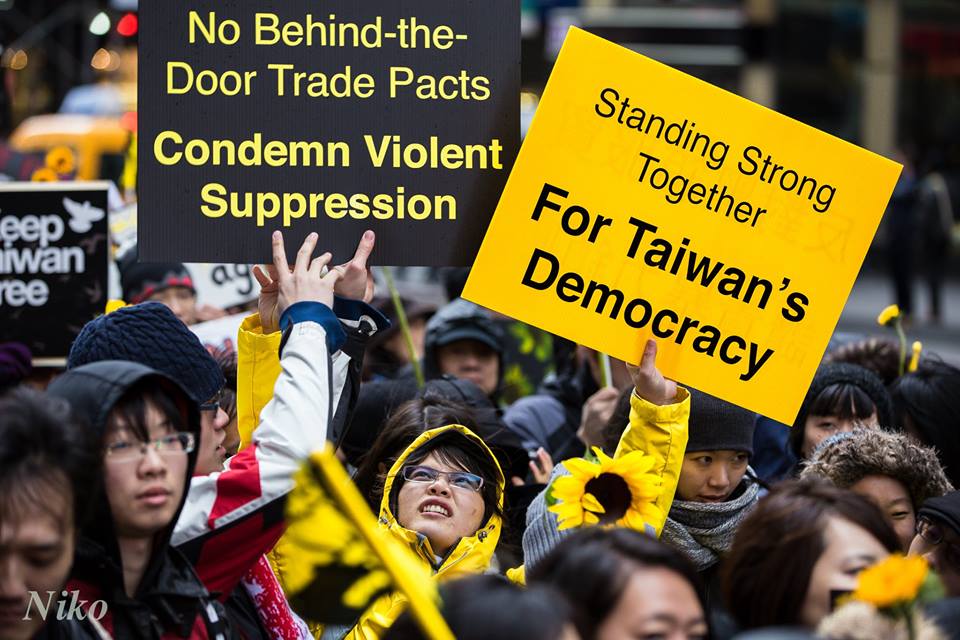
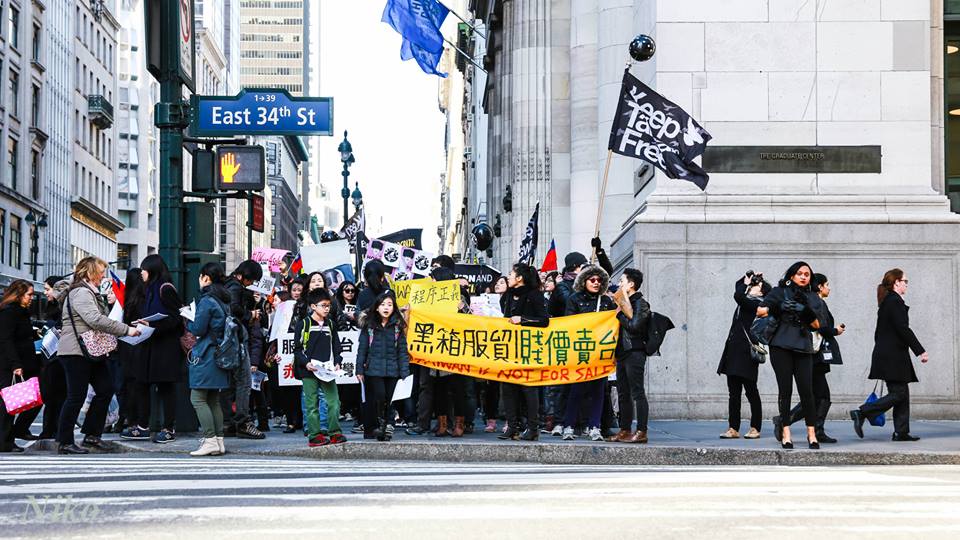
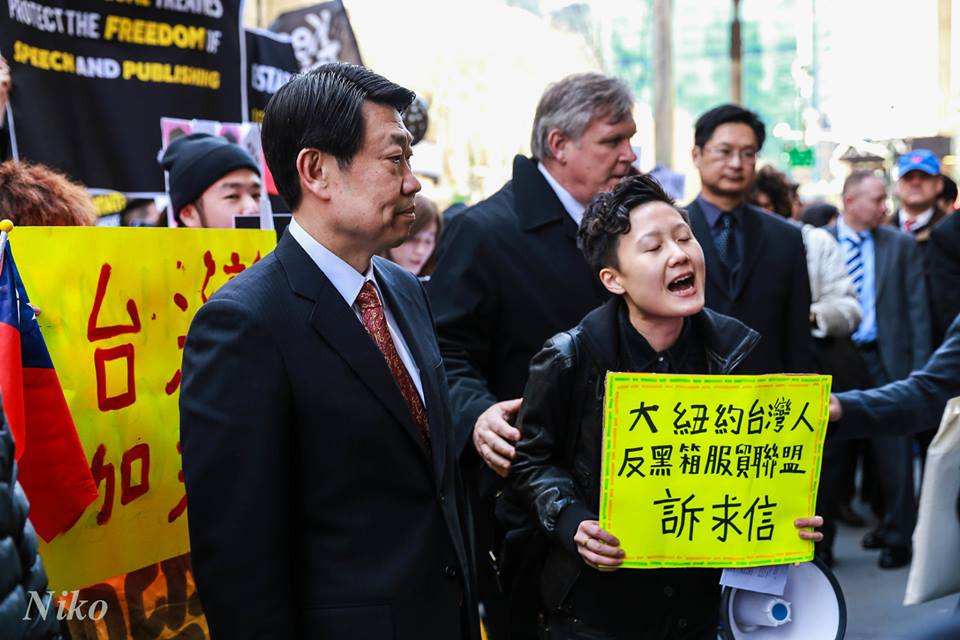
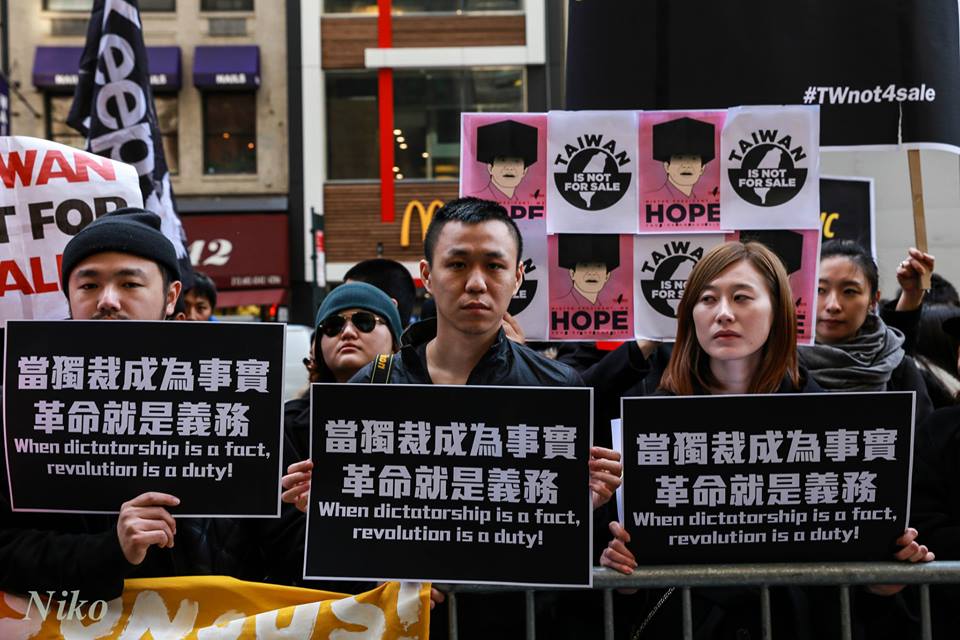
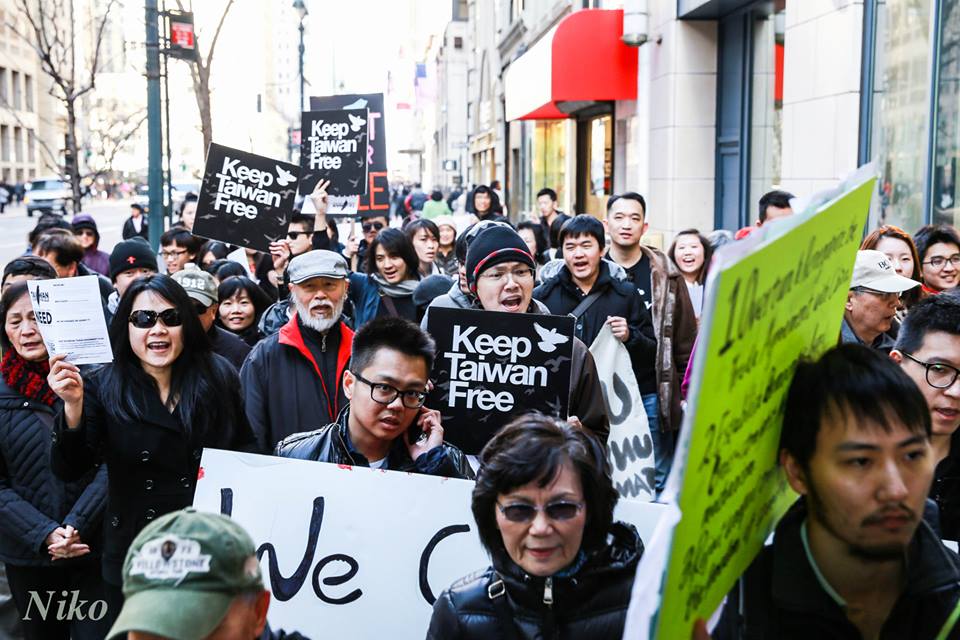
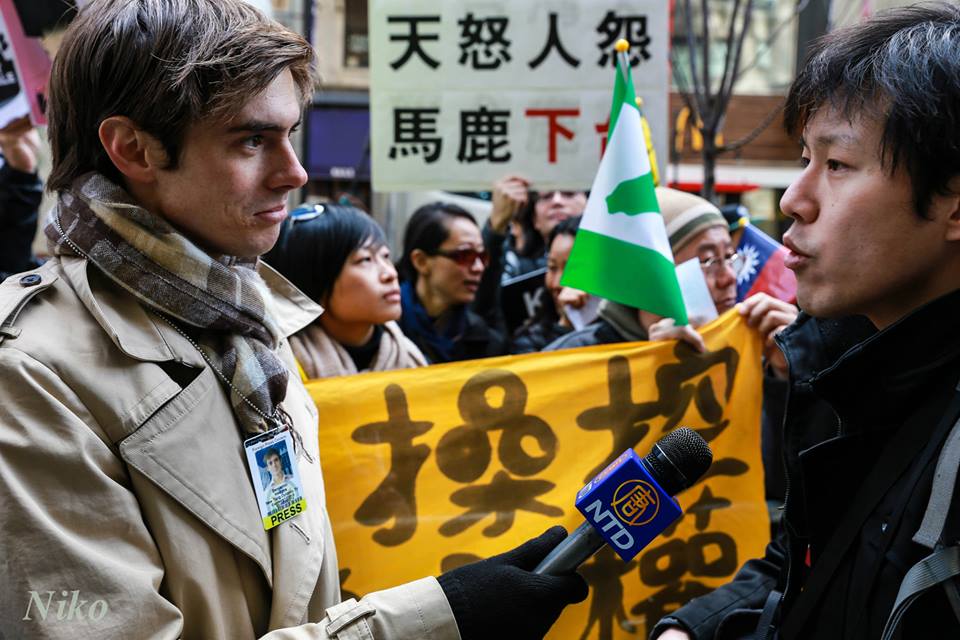
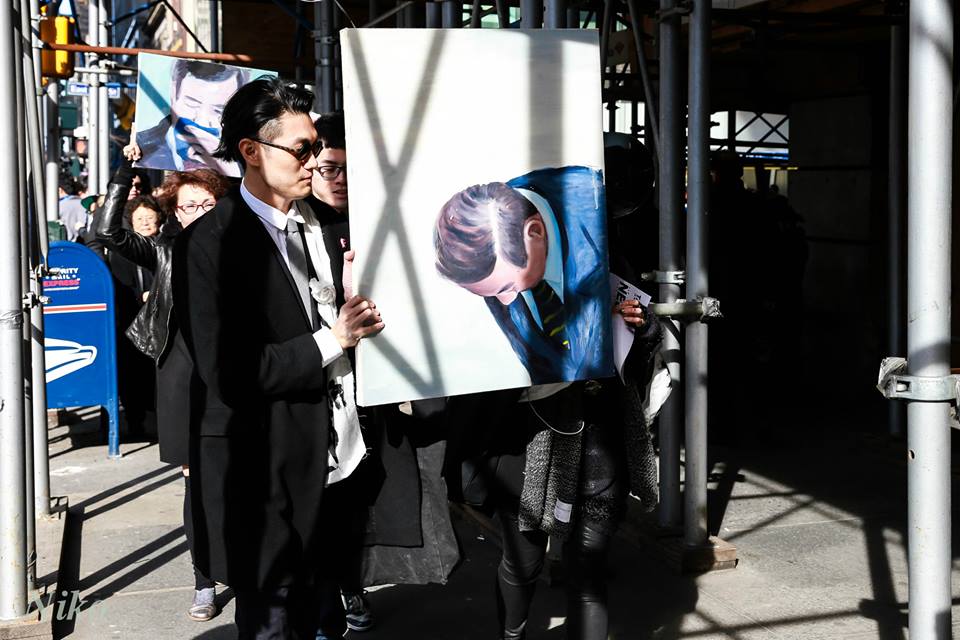
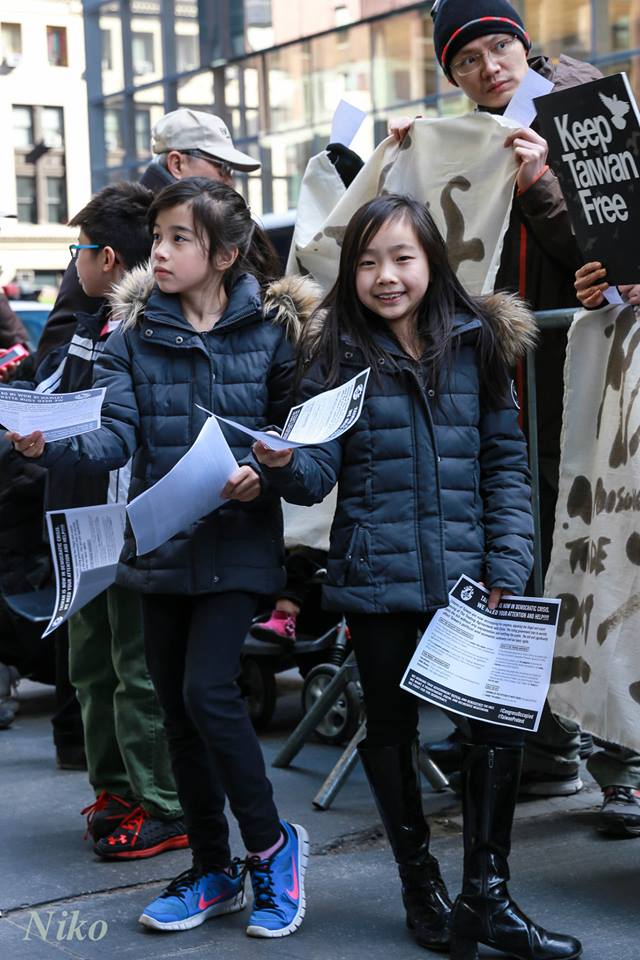

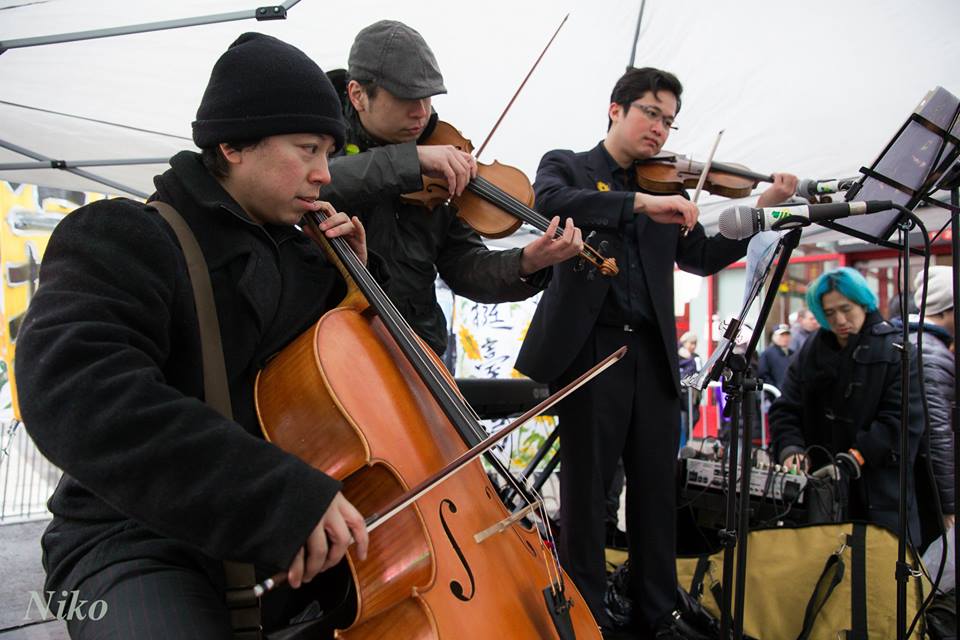
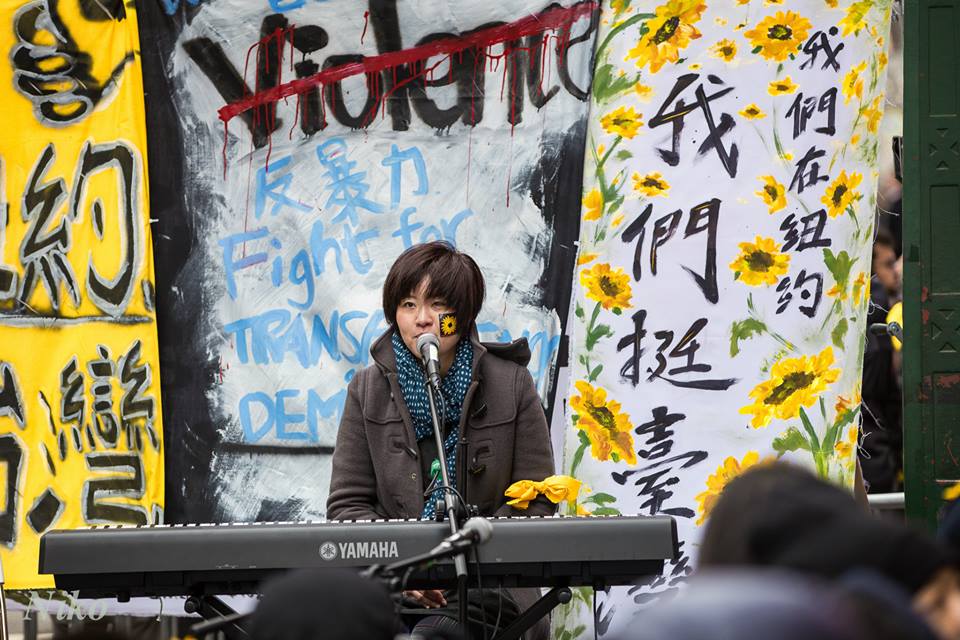

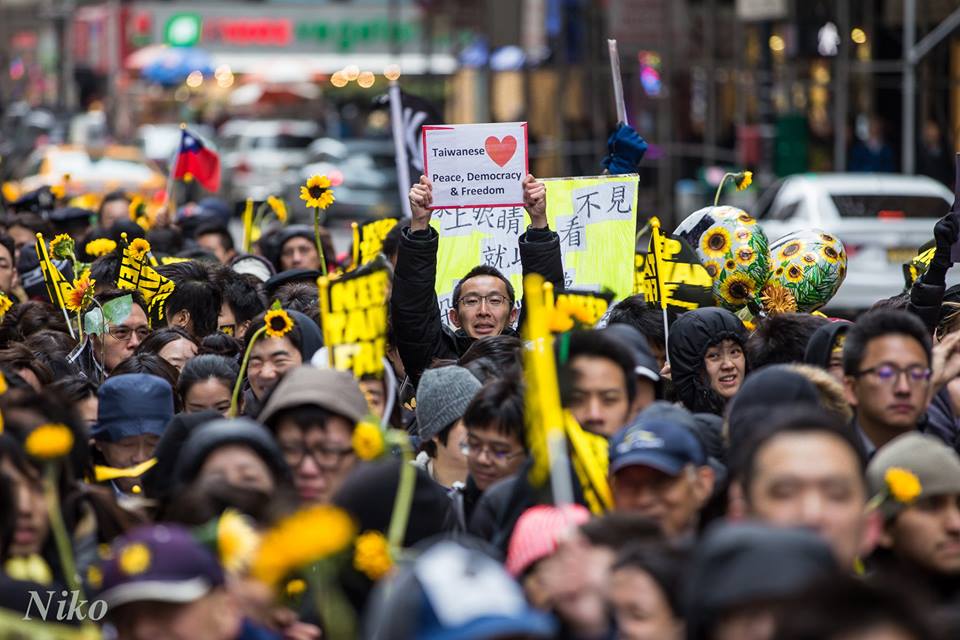
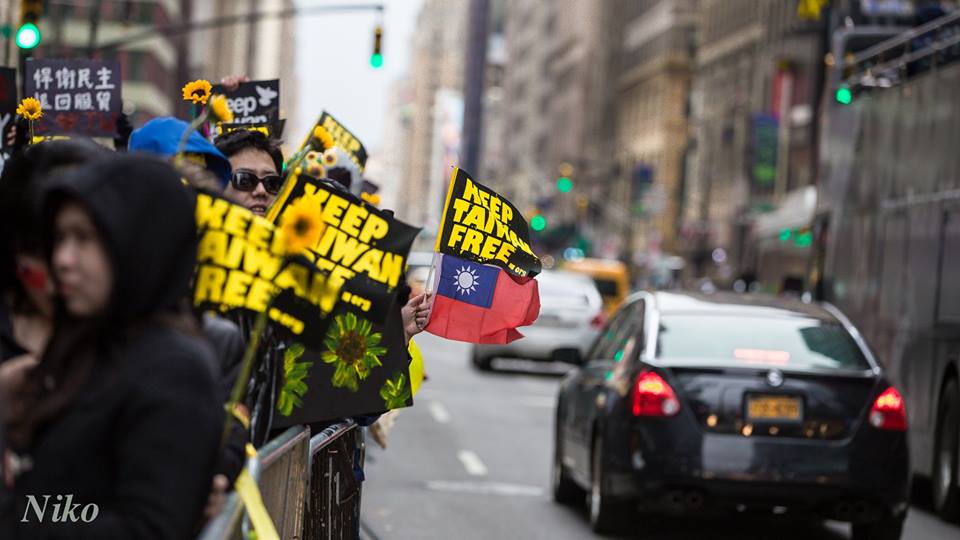
I’m surprised to see such a complicated political issue was over simplified in this post. I hope readers don’t mistakenly think Taiwan has no freedom and not a democratic country.